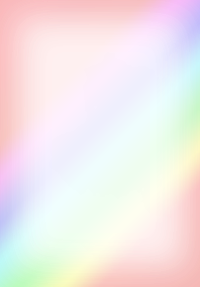
Ephara Flash & Taxes
Commander / EDH Control Death and Taxes Hatebears Multiplayer Primer WU (Azorius)
Creature (33)
-
1x
Archaeomancer

-
1x
Body Double

- 1x Boreas Charger
-
1x
Containment Priest

-
1x
Eldrazi Displacer

-
1x
Elesh Norn, Grand Cenobite

-
1x
Ethersworn Canonist

-
1x
Flickerwisp

- 1x Gilded Drake
-
1x
Glen Elendra Archmage

-
1x
Hushwing Gryff

-
1x
Karmic Guide

-
1x
Leonin Relic-Warder

-
1x
Linvala, Keeper of Silence

-
1x
Monastery Mentor

-
1x
Phantasmal Image

-
1x
Phyrexian Metamorph

-
1x
Recruiter of the Guard

-
1x
Remorseful Cleric

-
1x
Reveillark

-
1x
Silver Myr

-
1x
Snapcaster Mage

-
1x
Spell Queller

-
1x
Spellseeker

-
1x
Stonecloaker

-
1x
Stormscape Familiar

-
1x
Sun Titan

-
1x
Teferi, Mage of Zhalfir

-
1x
Thalia's Lancers

-
1x
Trophy Mage

-
1x
Venser, Shaper Savant

-
1x
Weathered Wayfarer

-
1x
Whitemane Lion

Land (37)
-
1x
Academy Ruins

-
1x
Adarkar Wastes

-
1x
Ancient Tomb

-
1x
Command Tower

-
1x
Emeria, the Sky Ruin

-
1x
Flooded Strand


-
1x
Glacial Fortress

-
1x
Hallowed Fountain


-
1x
Inventors' Fair

-
1x
Irrigated Farmland

-
4x
Island

-
1x
Marsh Flats

-
1x
Mistveil Plains

-
1x
Misty Rainforest

-
1x
Myriad Landscape

-
1x
Mystic Gate

-
1x
Nimbus Maze

-
1x
Nykthos, Shrine to Nyx

-
9x
Plains

-
1x
Polluted Delta

-
1x
Prairie Stream

-
1x
Skycloud Expanse

-
1x
Strip Mine

-
1x
Temple of Enlightenment

-
1x
Tundra
 SL
SL
-
1x
Windswept Heath

Planeswalker (2)
Enchantment (2)
Sorcery (2)
Commander (1)
Instant (12)
-
1x
Capsize

-
1x
Cyclonic Rift

-
1x
Enlightened Tutor

-
1x
Forbid

-
1x
Intuition

-
1x
Mana Drain

-
1x
Muddle the Mixture

-
1x
Mystical Tutor

-
1x
Teferi's Protection

- 1x Tithe
-
1x
Unexpectedly Absent

Artifact (11)
Sideboard
Suggestions
Updates Add
Comments
Attention! Complete Comment Tutorial! This annoying message will go away once you do!
Important! Formatting tips — Comment Tutorial — markdown syntax
Please login to comment
Casual
95% Competitive
| Date added | 6 years |
| Last updated | 5 years |
| Legality | This deck is not Commander / EDH legal. |
| Rarity (main - side) | 15 - 1 Mythic Rares 50 - 2 Rares 12 - 1 Uncommons 7 - 0 Commons |
| Cards | 100 |
| Avg. CMC | 2.87 |
| Tokens | City's Blessing, Emblem Elspeth, Sun's Champion, Emblem Venser, the Sojourner, Monk 1/1 W, Pegasus 1/1 W, Soldier 1/1 W |
| Folders | Commander, edh, Inspiration, Deck Inspiration |
| Votes | |
| Ignored suggestions | |
| Shared with | |
| Views |

